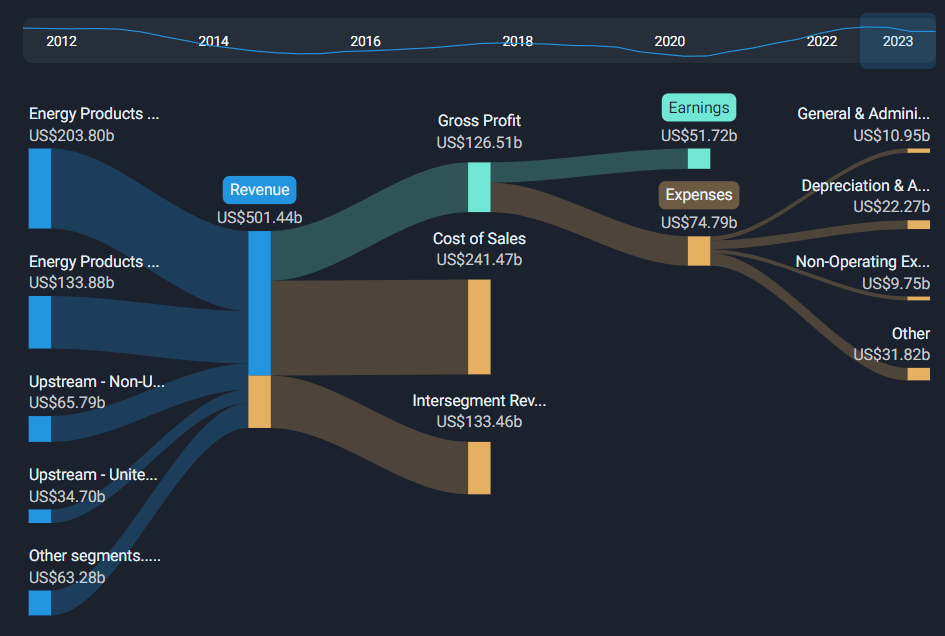The Invisible Hand: How Adam Smith's Ideas Still Shape Global Economics and Power
Finance
2025-04-14 10:00:08Content

Adam Smith, the pioneering economist of the 18th century, revolutionized our understanding of economic systems through his groundbreaking concept of the "invisible hand." This powerful metaphor wasn't just an abstract economic theory, but a profound insight into how markets naturally self-regulate and create prosperity.
Smith's vision went beyond simple economic transactions. He proposed that individual self-interest, when channeled through free markets, could paradoxically benefit society as a whole. Entrepreneurs and traders, each pursuing their own goals, would inadvertently contribute to the greater economic good - as if guided by an unseen force.
The "invisible hand" suggests that market participants, driven by personal motivation, create a complex and dynamic economic ecosystem. Without centralized control, these individual actions collectively generate wealth, distribute resources, and drive innovation. It's a concept that transformed economic thinking, emphasizing the power of individual choice and voluntary exchange.
While Smith's metaphor might sound almost mystical, it represents a rational explanation of how free markets can efficiently allocate resources and create economic value. His insights continue to influence economic policy and understanding to this day, making him a foundational figure in modern economic thought.
The Invisible Hand: Unraveling Adam Smith's Economic Philosophy
In the intricate landscape of economic theory, few concepts have shaped our understanding of market dynamics as profoundly as Adam Smith's revolutionary ideas. His groundbreaking work transcends mere economic principles, offering a nuanced exploration of human behavior, social interactions, and the complex mechanisms that drive economic prosperity.Decoding the Mystical Forces Behind Economic Interactions
The Origins of Economic Enlightenment
Adam Smith emerged as a pivotal intellectual figure during the Scottish Enlightenment, challenging conventional wisdom about economic systems. His seminal work, "The Wealth of Nations," fundamentally transformed how societies conceptualize economic interactions. Unlike previous economic philosophers, Smith recognized that individual self-interest could paradoxically contribute to collective societal benefits. The concept of the "invisible hand" represents more than a metaphorical construct. It embodies a sophisticated understanding of how seemingly independent economic actors create intricate networks of mutual benefit. Smith argued that when individuals pursue their personal economic objectives, they inadvertently generate broader economic advantages that extend far beyond their immediate intentions.Understanding Market Dynamics and Human Motivation
Smith's philosophical framework went beyond simplistic notions of economic transactions. He deeply explored human psychology, recognizing that economic decisions are not purely rational but influenced by complex emotional and social considerations. The invisible hand operates not through divine intervention but through the intricate interactions of human desires, capabilities, and strategic decision-making. Economic systems, according to Smith, are living ecosystems where individual choices create dynamic, self-regulating mechanisms. Each participant contributes to a larger economic narrative, their actions interconnected in ways that transcend immediate comprehension. This perspective challenged prevailing mercantilist theories that viewed economic interactions as zero-sum competitions.The Philosophical Underpinnings of Free Markets
Smith's intellectual contribution extended beyond economic theory into moral philosophy. He viewed economic interactions as fundamentally ethical endeavors, where mutual respect and understanding form the cornerstone of productive exchanges. The invisible hand represents not just an economic principle but a profound insight into human cooperation and collective progress. By emphasizing individual liberty within a structured economic framework, Smith proposed a revolutionary model of societal organization. His ideas suggested that freedom, when balanced with ethical considerations, could generate unprecedented levels of innovation, productivity, and social welfare.Global Implications and Modern Interpretations
Contemporary economists continue to debate and refine Smith's original insights. While the invisible hand remains a powerful metaphor, modern economic understanding recognizes both its strengths and limitations. Global economic systems have become exponentially more complex, requiring nuanced interpretations of Smith's foundational principles. The essence of Smith's philosophy persists: economic systems are fundamentally human constructs, driven by individual aspirations yet capable of generating collective prosperity. His work continues to inspire economists, policymakers, and thinkers worldwide, offering a timeless perspective on the intricate dance between individual agency and broader societal dynamics.Legacy and Continuing Relevance
Adam Smith's intellectual legacy transcends traditional economic boundaries. His holistic approach to understanding human behavior provides insights that remain remarkably relevant in today's rapidly evolving global landscape. The invisible hand represents not just an economic theory but a profound meditation on human potential, cooperation, and the subtle mechanisms that drive societal progress. By recognizing the interconnectedness of individual actions and collective outcomes, Smith offered a transformative vision of economic interactions—one that continues to challenge, inspire, and reshape our understanding of human potential.RELATED NEWS
Finance

Suominen's 2024 Financial Reveal: Steady Gains Signal Corporate Resilience
2025-03-05 07:30:00
Finance

Green Energy Breakthrough: OKKO Secures Massive $173M Wind Power Financing
2025-04-04 11:36:16






